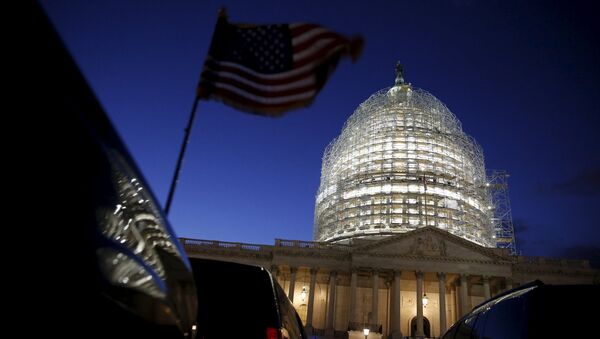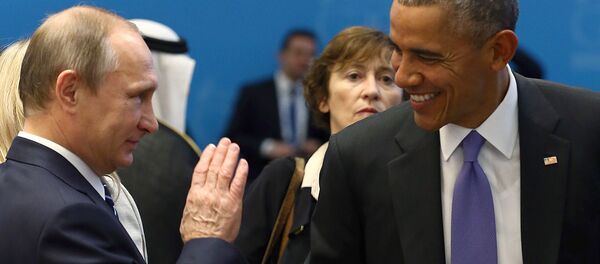Experts agree that working through differences and reestablishing trust between the two global powers is challenging in current circumstances, but it is nevertheless possible. Executive director of The Center for the National Interest Paul J. Saunders offers his take on one of the key obstacles in this process.
"Notwithstanding the efforts of Secretary of State John Kerry and Russian Foreign Minister Sergey Lavrov [with regard to the Iranian nuclear deal or the Syrian ceasefire], the US-Russia relationship won't improve in any enduring way without wider support among elites in the two countries."
To a large extent, the Reset policy failed to usher in a new era in relations between the US and Russia because the Obama administration "was unable to persuade" congressional Republicans that the initiative benefited both sides.
"Rather than appreciating Moscow's assistance to the US military in Afghanistan, many Republicans resented that Russia was not doing more and harbored suspicions of the Kremlin's aims in Central Asia," the analyst explained.
Likewise, the Republicans largely opposed the agreement with Iran, viewing it as a weak deal that Tehran and Moscow supposedly forced on Obama. The administration has since made every effort to show that the Joint Comprehensive Plan of Action (JCPOA) is in fact a major achievement for everyone.
It follows then that "for US-Russian cooperation in Syria to stimulate sustainable improvements in US-Russia relations, it will require broader political support than it so far appears to have, especially in the United States," Saunders noted.





